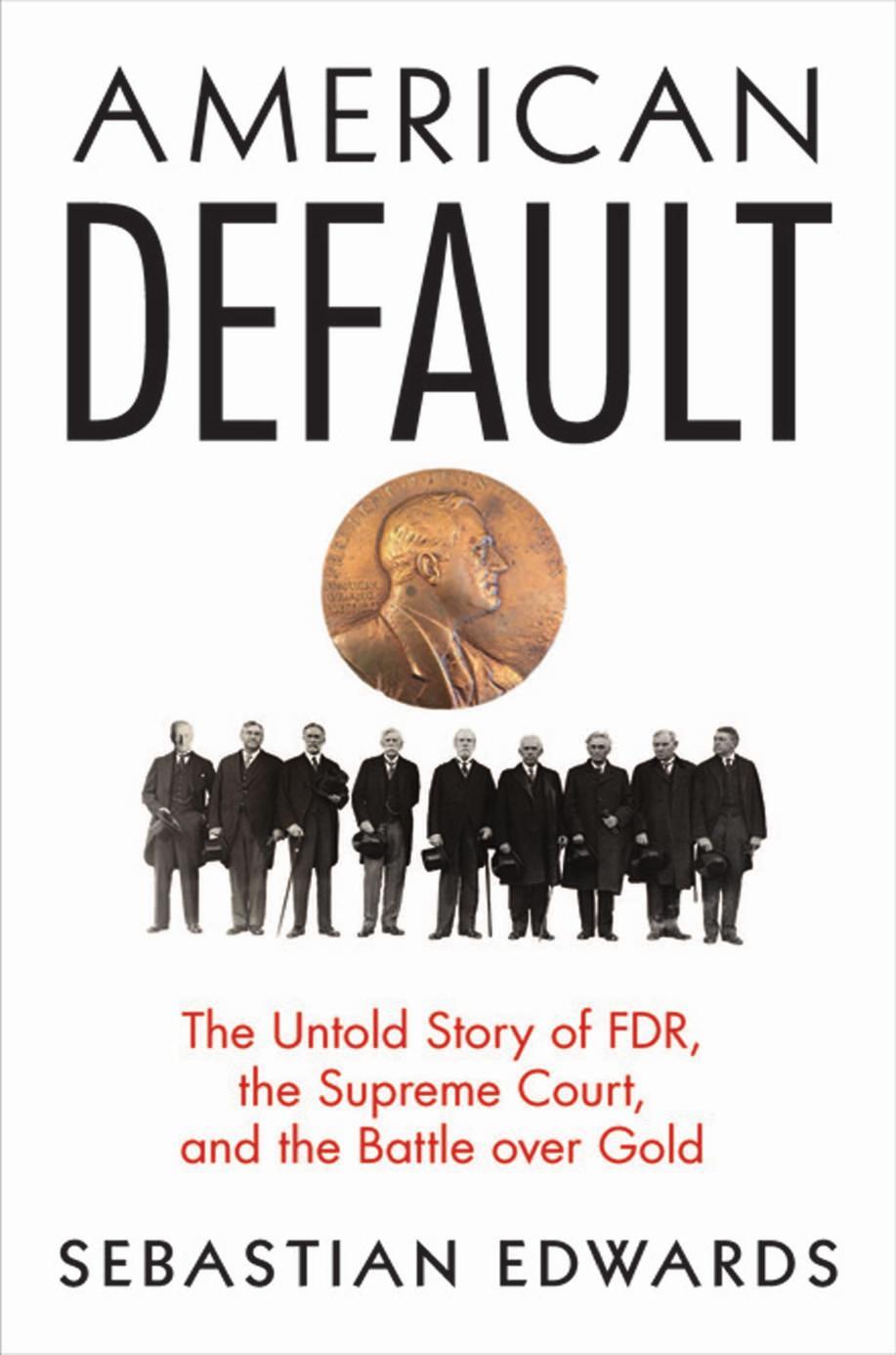
More products digital (pdf, epub, mobi) instant download maybe you interests ...

Food and Package Engineering
https://ebookgrade.com/product/food-and-package-engineering/

Microstructural Principles of Food Processing Engineering (Food Engineering Series)
https://ebookgrade.com/product/microstructural-principles-offood-processing-engineering-food-engineering-series/

Mathematical and Statistical Applications in Food Engineering
https://ebookgrade.com/product/mathematical-and-statisticalapplications-in-food-engineering/

CRC Mathematical and Statistical Applications in Food Engineering 1138347671
https://ebookgrade.com/product/crc-mathematical-and-statisticalapplications-in-food-engineering-1138347671/

Tribe Sebastian Junger
https://ebookgrade.com/product/tribe-sebastian-junger/

American Default Sebastian Edwards
https://ebookgrade.com/product/american-default-sebastianedwards/

China's Political System Heilmann Sebastian
https://ebookgrade.com/product/chinas-political-system-heilmannsebastian/

Anatomy & Physiology Text and Elsevier Adaptive Learning Package 8th Edition
https://ebookgrade.com/product/anatomy-physiology-text-andelsevier-adaptive-learning-package-8th-edition/
Another random document with no related content on Scribd:
anything except their visit to town. Miss Burton had very inattentive pupils during the next few weeks. Beryl could not give her mind to her lessons; but she took the liveliest interest in the various preparations which were being made for their leaving home. Lucy's needle was now never idle, so much making and mending had she to do for her two young ladies.
And one bright morning, the children were excused all lessons, that Mr. Hollys might drive them and their governess to Langport, the nearest town of any size to Egloshayle, where, for more than two hours, they were going with Miss Burton from shop to shop, as she purchased dresses, boots, gloves, and the various articles they needed to equip them for their London visit, while Mr. Hollys attended to business of his own in the town.
When, at last, the eagerly expected day arrived, it was a large and merry party which started from Egloshayle House en route for London. Hettie Burton was one of the travellers, for her home was at Hampstead, and she was going to spend there the weeks during which her pupils were at Mrs. Everard's. Lucy, too, was in attendance, for Mr. Hollys wished to spare Mrs. Everard and her daughter any unnecessary trouble in the management of the children.
Coral and Beryl were in the gayest spirits, as they set forth to make acquaintance with the great world lying beyond their quiet Cornish home. The journey was an event in Beryl's life, for she had never been many miles from peaceful Egloshayle. What a long, long journey it was! The children were both too weary to receive any clear impression of their new surroundings, when they were lifted out of the carriage at the door of Mrs. Everard's house in Hyde Park Gardens. Having given them into his friend's care, Mr. Hollys drove off to his own rooms in Russell
Square, promising to look in early on the following day to see how the children were getting on.
The little girls woke bright and well the next morning, though at a rather later hour than usual. They came downstairs, however, in time to see Percy ere he started for his tutor's, and joyfully renewed their acquaintance with him.
Beryl was delighted with all she saw in Mrs. Everard's home. Especially did she admire the handsome King Charles spaniel, which sat on a chair by Mrs. Everard's side as she took her breakfast, and was treated to dainty morsels from her plate. Beryl wanted to make friends with him; but, to her surprise, he would not respond graciously to her overtures. Prince was an aristocrat, keenly alive to his own dignity. By a low growl, and a sudden display of his delicate white teeth, he expressed his resentment of the familiarity of Beryl's touch, and when Mrs. Everard lifted little Coral on to her lap, his jealousy broke forth in a storm of indignant barks. It was evident that he viewed the children with disgust as unwelcome intruders.
After breakfast, the children went up to the large room at the top of the house which had once been Percy's nursery, and was now given to them as a playroom. The windows commanded one of the entrances to the Park, and as it was a bright, sunshiny morning, the children found great entertainment in watching the many carriages and still more numerous riders that passed in and out of the wide gates. It was a wonderful scene to them, so different from the quiet beach at Egloshayle, and Lucy enjoyed it no less than her young charges. Whilst they were thus engaged, a lady came into the room and greeted them brightly and fondly.
This was Mrs. Campbell, Mrs. Everard's widowed daughter. She seemed inclined to pet and indulge the children. She said she would take them out in the afternoon, and asked them which they would like best—to go to the Zoological Gardens or to Madame Tussaud's. As they knew nothing of the attractions of either place, it was rather difficult to decide. Whilst they were discussing the important question, a servant brought the news that Mr. Hollys was below.
"How good of your papa to come so soon!" said Mrs. Campbell. "But I hope he will not want to take you away from me."
Accustomed as she was to be petted and indulged, Beryl was charmed beyond measure by Mrs. Campbell's sweet, caressing manner and winning words. As she went downstairs, holding that lady's hand, she thought that she had never known any one so kind and pleasant. Coral, who walked behind, and had been less noticed, was not so favourably impressed with their new acquaintance.
Mr. Hollys had come with the intention of taking the children into the Park, to amuse them with a sight of the beautiful horses, and fair and stately riders, to be seen at this hour in Rotten Row. But Mrs. Campbell had so much to say to him that it was some time ere he could get away, and Beryl's patience was sorely tried.
"Well, Beryl, how do you like your present quarters?" asked Mr. Hollys, as with the two children, he left the house, having promised to return there for luncheon, and afterwards join in the excursion to the Zoological Gardens, which Mrs. Campbell had planned for the children's pleasure.
"Oh, papa, I think everything is delightful," exclaimed Beryl rapturously, "and Mrs. Everard is so kind, and Percy, and Mrs. Campbell."
"Then you like Mrs. Campbell?" observed her father.
"Why, yes, of course I do," exclaimed Beryl; "I think Mrs. Campbell is the nicest woman I have ever known; don't you, Coral?"
"Not nicer than Miss Burton," said Coral.
"Well, no; she is not nicer than Miss Burton; no one could be; but Mrs. Campbell is very kind and very pretty; don't you think so, papa?"
"Oh, of course," said Mr. Hollys with a laugh, which puzzled Beryl.
"She is not so pretty as Miss Burton," remarked Coral; who, for some reason or other, was not enchanted with the fair widow, as Beryl was.
"I don't know," returned Beryl; "Miss Burton has not such golden hair. Which do you think the prettiest, papa: Miss Burton or Mrs. Campbell?"
"Oh, Miss Burton, by a long way," he answered, without a moment's hesitation.
The children thoroughly enjoyed walking through the Park, and gazed with charmed eyes on the novel sights they saw there. True, the wind was in the east, but what do children reck of east winds, if only the sun be bright!
The weather continuing fine, they had plenty of sight-seeing in the days that followed. Mrs. Campbell was indefatigable
in her efforts to amuse them. She took them to all the sights and shows that children love, marched them through the bazaars, and purchased for them many of the pretty and curious toys which decked the stalls. It was evident that Beryl held the first place in the lady's regard. The presents given to her were generally more handsome and costly than those bestowed on Coral. Beryl was not so well aware of this as Coral was. If she noticed it, she did not think it strange that she should have better things than her little sister. She was accustomed to have the first consideration.
Though he liked little Coral, and was kind to her, Mr. Hollys could not treat her quite as he treated his own child.
The weeks of the children's stay in London passed rapidly away. Mr. Hollys did not have a great deal of Beryl's company, although he was a frequent visitor at the house in Hyde Park Gardens, but he heard much of his child's sayings and doings from the lips of Mrs. Campbell. Beryl was vexed that her father had so little leisure to bestow on her. He would readily promise to take her anywhere she wished to go; but the time for doing so was seldom found. Perhaps Beryl would not have minded this, could she have seen more of Percy. But Percy at home was a different person from Percy at Egloshayle. He was working hard for an examination, and could spare scarcely any time for trifling with the children.
Mr. Hollys had promised Beryl before they left home that he would take her to see her friend David Gilbank during her visit to London; but week after week went by, and the promise was not redeemed, although Beryl did not fail to remind him of it.
One day in the first week in May, when Mr. Hollys was lunching at Mrs. Everard's, some one mentioned the Royal Academy Exhibition, just opened, and Mrs. Everard invited Mr. Hollys to drive there, with herself and her daughter, that afternoon.
"I shall be very happy," said Mr. Hollys, with careless politeness; "the pictures are said to be well worth seeing this year."
"Oh, papa," cried Beryl eagerly, "do you think that any of Mr. Gilbank's pictures will be there?"
"I dare say," he replied; "I believe his pictures have been exhibited there."
"Do take me with you," exclaimed Beryl impetuously; "I should so like to see Mr. Gilbank's pictures."
"I don't know about that, Beryl," replied her father; "you must ask Mrs. Everard's permission. It may not be agreeable to her to have the company of such an importunate young person as you are."
He glanced at Mrs. Everard as he spoke, and she was about to reply that she would be very pleased to take Beryl, when her daughter's soft, sweet voice interposed.
"We should be delighted to take dear Beryl with, us, should we not, mamma?" said Mrs. Campbell; "but I think we must consider what is good for her. The galleries of the Academy are so hot and crowded of an afternoon that it is scarcely the place to which to take a child. She could not see the pictures for the people who would be around her, and I fear the poor darling would grow very weary, especially as she has been in the Park all the morning."
"Ah, to be sure, you are right; it would not be a good place for her," said Mr. Hollys.
"I am not a bit tired, papa," protested Beryl, her cheek flushing with anger at what she considered Mrs. Campbell's interference; "it would not hurt me, I am sure."
"My darling, you are hardly old enough to know what will harm you and what will not," said Mrs. Campbell in her gentlest tones. "We older people must judge for you. I tell you what I will do, Beryl; I will take you myself some morning early to the Academy, and we will have a good look at Mr. Gilbank's pictures before the crowd begins to gather. I will look for them to-day, that I may know where to take you."
"Thank you; but I would much rather go this afternoon," said Beryl ungraciously.
"It is better you should not go. Say no more about it, Beryl," said Mr. Hollys, in his most decided manner.
"Poor darling, I wish we could let you have your wish," said Mrs. Campbell fondly, as she placed on Beryl's plate some crystallised apricots, a dainty of which the child was fond.
But Beryl was not in a mood to be solaced by sweetmeats. Her cheek crimsoned, and she bit her lips to keep from crying; but the tears which had sprung to her eyes were called thither by anger rather than by sorrow.
"I should have gone if it had not been for Mrs. Campbell," she complained afterwards to Coral; "Mrs. Everard was willing to take me, and papa would never have thought about its being hot and crowded. But Mrs. Campbell did not want to have me with her; I could see that plainly enough,
although she pretended to be sorry for me. I don't like her as I did; she is not nearly so nice as Miss Burton."
And Coral agreed with this opinion.
CHAPTER XXIV
DAVID GILBANK'S PICTURE
MRS. CAMPBELL, as, conducted by Mr. Hollys, she moved through the crowded picture galleries, was congratulating herself on the clever way in which she had avoided the trouble and distraction which Beryl's presence would have caused. In the second room, they found one of David Gilbank's pictures.
"Why, I declare!" exclaimed Mr. Hollys, as his eyes fell on it. "It is Egloshayle! And he has painted Coral and Beryl."
It was a boldly-painted sketch of a seabeach, lying bathed in summer sunshine. The tide was receding the beach, the waves in gentle, sportive fashion rippled back from the glistening wet pebbles. Half-way up the beach, keel upwards, lay a stoutly-built fishing-boat, and seated in its shadow were two children, whom Mr. Hollys recognised as Coral and Beryl; for, small as was the scale on which they were painted, the resemblance was striking. The free, unrestrained grace of the children's attitudes was admirable. Nothing could be more natural than Beryl's pose as she leaned against the side of the boat, her bright hair
falling over her shoulders in vivid contrast to the dark wood, and her feet firmly planted against the shaggy back of old Lion, who lay just beyond the edge of the shadow, in full enjoyment of the sunshine. Beryl's face wore a look of lazy content; but Coral, who was leaning forward and gazing at the sea, had an expression of wondering, childish reverie in her large dark eyes.
"It is lovely!" exclaimed Mrs. Campbell. "I never saw a prettier picture. The children must have sat for it."
"I believe they did," returned Mr. Hollys, "for I remember now that Beryl told me that Gilbank painted them whilst he was at Egloshayle; but I did not think of anything so good as this. I must secure this picture."
So, asking the ladies to excuse him for a few minutes, he went away to make arrangements for purchasing the painting. But he quickly returned, his face wearing a look of vexation.
"Is it not annoying?" he said. "The picture has already found a purchaser. It was sold not half an hour ago."
"How very tiresome!" exclaimed Mrs. Campbell. "But perhaps you can come to terms with the purchaser."
"I fear not," said Mr. Hollys; "it is no dealer who has bought it, but a gentleman who has taken a fancy to the picture. Robert Harvey is his name. I do not know him, though I seem to have some strange association with the name that I cannot define."
"A very ordinary name!" remarked Mrs. Campbell. "Yes, certainly. Well, I wish Robert Harvey, whoever he is, had not bought that picture."
As he spoke the Robert Harvey who had forestalled him in the purchase of the picture was standing within a few yards of Mr. Hollys. He was a tall, somewhat stern-looking man, with greyish-brown hair and a long sweeping beard of the same mixed hues. His face was deeply coloured, as if from constant exposure to the elements, and had, moreover, a withered, wrinkled appearance, which made him seem older than he was. An expression of melancholy was on his countenance, and, as he moved through the crowd, his shy, awkward bearing betrayed a sense of isolation even in the midst of his fellows.
He paused before the picture which he had made haste to purchase, and looked at it with a long and earnest gaze. It had a strange fascination for him, and the secret of the charm lurked in the grave, sweet face of little Coral. He could not have explained how it was that that childish face exerted such an influence over him.
It seemed to bring to life again his boyish days, so long, long buried in the past. He saw himself a rough, strong lad leading with gentle hand his tiny, dark-eyed sister along a pebbly shore by just such a sunlit sea as shone in the picture. She had been very like that little girl, only prettier; yes, he was sure that his sister was prettier. How he had loved her, his darling, only sister! Yet he had tyrannised over her; he had always made her will bend to his, till a time came when her woman's will, growing strong under the stimulus of love, had dared to rebel against his authority. She had taken her own way in defiance of him, and he had vowed that he would trouble himself no more about her. Now, he knew not if she were dead or alive.
He had returned to London, after being absent for many years from England, hoping to find his sister, but had failed to do so. He had lived to regret, with keen self-reproach,
the severity with which he had treated her. He regretted it more than ever, as little Coral's face brought to mind one and another tender memory of his childhood.
Coral and Beryl were astonished to learn that their friend Mr. Gilbank had put them into his picture. Of course they were eager to see the painting, and Mr. Hollys, after some coaxing, agreed to take them to the Academy at an early hour the next morning.
The children were very pleased with David Gilbank's work. Their childish vanity was gratified by his exact representation of them as they had appeared last summer, even to the very sun-bonnets, which they had thought so ugly when Lucy had insisted on their wearing them for the sake of their complexions. Beryl was delighted too with the excellence of Lion's portrait.
"Now, papa, you will take us to see Mr. Gilbank, will you not?" Beryl exclaimed.
"Certainly I will; it is a promise, you know," he replied. "I will try to manage it to-morrow."
"I hope Mrs. Campbell won't want to go with us," said Beryl.
"Why not?" asked her father in surprise. "I thought you were so very fond of Mrs. Campbell."
"I am not so very fond of her now," said Beryl, with an odd emphasis on the very.
In truth, Beryl's feelings towards that lady had so changed that, instead of being fond of her, she was beginning to dislike her. She watched Mrs. Campbell's words and ways with a child's keen observation, and found much to criticise in her confidences with Coral. Moreover, something scarce
definable in the words and looks of those about her made Beryl fear that Mrs. Campbell would exercise a disturbing influence on her childish future. This fear took definite form on the evening following their visit to the Academy.
Beryl, who complained of a headache, had been sent to bed rather earlier than usual by Mrs. Campbell. She was not in the best temper at this, despite the honeyed words with which that lady had dismissed her. As she approached the nursery, she found that Lucy was enjoying a gossip with Mrs. Campbell's maid. Ere she entered, Beryl's quick ears caught the words uttered by Lucy:
"Then you think they will make a match of it!"
To which the other servant replied, "I feel pretty sure of it. You should see how particular my lady is about her dress whenever she is going to see Mr. Hollys. Poor Miss Beryl! I wonder how she will like to have a stepmother."
"Hush!" said Lucy with a warning glance, as Beryl appeared.
Lucy thought that the child could not have heard; but as she began to undress her she wondered what could have put the young lady so much out of temper.
When Lucy was brushing her hair, Beryl said suddenly
"Lucy, what were you and Mrs. Campbell's maid talking about when I came in?"
"Oh, nothing particular, Miss Beryl!" replied Lucy evasively. "Leastways, nothing that concerns you."
"That's not true, Lucy," returned Beryl hotly. "I heard what you were talking about. You were saying that papa would marry Mrs. Campbell. But it's not true; I know it's not."
"Well, I never, Miss Beryl!" exclaimed Lucy, in affected astonishment. "I'm sure you can't say that you heard me say that!"
"You may not have said exactly those words, but was what you meant," cried Beryl excitedly; "but it's not true. I know it can't be true."
Beryl's emotion quite overpowered her, and she burst into hot, passionate tears. Lucy did her best to soothe her.
"Come, come, Miss Beryl; don't cry for nothing!" she said. "You're overdone, that's what it is. You've had a long, tiring day. You'll feel better when you get to bed."
But she did not tell Beryl that it was unlikely she would have a stepmother, and Beryl, whose ideas of stepmothers had been gathered from story books, regarded such a possibility with the utmost dread. Especially did she dislike the thought of Mrs. Campbell's filling such a position towards her.
Beryl woke the next morning with a heavy sense of trouble; there came a gleam of comfort, however, with the recollection that she should see Mr. Gilbank that day.
But, unfortunately, as Beryl had feared, Mrs. Campbell contrived to make one of the party who set out for the artist's studio. As they drove to St. John's Wood, Beryl gravely eyed her father and the lady, as they sat side by side on the opposite seat. She was watching for some sign that should confirm the rumour that had caused her such uneasiness. Presently Mr. Hollys was struck with Beryl's unusually grave expression.
"What is the matter, Beryl?" he asked.
"I am thinking, papa," said Beryl.
"That is an extraordinary proceeding on your part, I suppose," he said lightly; "a penny for your thoughts!"
"Oh, I could not tell you them now," said Beryl blushing, and involuntarily glancing at Mrs. Campbell.
"Ah, I am afraid Beryl's thoughts concern poor me," said that lady with a laugh; "she is going to find fault with me when my back is turned."
Beryl's cheeks grew hotter, and she looked so guilty that her father hastily introduced another subject, in order to cover her confusion.
David Gilbank's studio was neither grand nor luxurious, but it struck the children as one of the most charming places they had ever visited; for it was furnished in simple, artistic style, had plenty of pictures, and a large supply of the picturesque knick-knacks artists love.
The artist was at work when they entered; but he cheerfully laid aside his brush to give his visitors a cordial greeting. It was an unexpected pleasure to him to see his little friends from Egloshayle, and he greeted them warmly.
Mr. Hollys soon began to speak of the picture that had so pleased him.
"I wish I could have had it," he said, almost impatiently. "You might have let me know that you had painted the children."
"I would have done so had I considered the faces to be portraits," said Mr. Gilbank. "But the picture is little more than a sketch made on the beach at Egloshayle. It was after
considerable hesitation that I decided to send it to the Exhibition."
"Do you know anything of the purchaser?" enquired Mr. Hollys.
"He is a man named Robert Harvey, who has made a fortune out in Australia," said Mr. Gilbank. "I wonder what made him take a fancy to my picture."
"Robert Harvey," repeated Mr. Hollys; "what is it makes that name seem so familiar to me?"
"Why, papa!" burst in Beryl eagerly. "I remember Coral's mamma told you that her brother's name was Robert Harvey. I was in the room when she said it."
"To be sure! How strange that I should have forgotten it!" exclaimed Mr. Hollys. "The child is right. Robert Harvey was the name I advertised so freely, and without result. We came to the conclusion that he was dead. Surely this man cannot be Coral's uncle!"
Little Coral uttered a startled cry, and looked frightened at the suggestion.
"Mrs. Despard said that he had gone to Australia," remarked Beryl.
"Yes, she did," replied her father; "but Australia is a large place, Beryl, and there might easily be more than one Robert Harvey there. However, I will try to find this man. Do you know his address, Gilbank?"
"Yes, no; they have it at the Academy; but I omitted to take it down; I am so careless in regard to these matters. But I will get it, and send it to you."
"Thank you," said Mr. Hollys; "I had better call on him, though I do not at all expect to find that he is Coral's relative."
The children were so eager to talk to Mr. Gilbank and examine his pretty things, that Mr. Hollys was persuaded to leave them with the artist for a little time whilst he went to his club. Mrs. Campbell drove away to do some shopping in Regent Street, so Coral and Beryl, greatly to their delight, were left alone with their friend. They had so much to tell him, and talked so fast, that Mr. Gilbank did not find it easy to understand them, as they told him what a good angel Miss Burton had proved to them, of the Sunday school they had started at Egloshayle, and of their labours at the Dorcas meeting.
At last Mr. Gilbank put a question that made Beryl pause.
"So you still strive to live as 'children of the kingdom,'" he said gently; "I am glad to know that."
Beryl's cheeks flushed, and she hung her head. She suddenly became aware that she had thought little of the kingdom since she came to London. She had indeed daily uttered the petition, "Thy kingdom come," but with scarce a thought about the meaning of the words. Amid the excitements of her new life she had found no time for reading the Saviour's words, and thinking upon His blessed life. And meanwhile there had been springing up in her heart anger and hatred and strong self-will.
"Mr. Gilbank," she said humbly, "I don't think it is so easy to be a 'child of the kingdom' in London as it is at Egloshayle."
"Why not?" he asked in surprise.
"Because there is so much else to think about," she said; "shopping, and dressing, and seeing sights. And then people are so horrid, one cannot help getting cross sometimes."
"A child of the kingdom has no excuse for getting cross, however 'horrid' people may be," said her friend; "and shopping, dressing, and sight-seeing are poor things to keep one from communing with the King. God, your Father, is as near to you in London as at Egloshayle; and if you have greater temptations, He will help you to overcome them if you ask Him. Remember, child, that being good comes before doing good. The kingdom of God is righteousness and peace and joy; and unless that kingdom is within you, you cannot serve the King."
"But, Mr. Gilbank," said Beryl, "how can you feel peace and joy, when your life seems to be going all wrong, and you are afraid everything will be spoiled for you?"
"What, child, have you come to that thus early?" said Mr. Gilbank, looking at her with a tender smile. "Well, I know of but one way of keeping calm amidst threatening troubles,— it is by trusting the love of God. Your Father in heaven loves you; He will not let anything really harm you, and nothing can happen to you but with His knowledge and by His will."
And Beryl resolved that she would try thus to trust God. And though, when her father presently called for them, she left the artist's studio feeling sad and humbled, she was in a happier and better frame of mind than that in which she had started for the visit.
